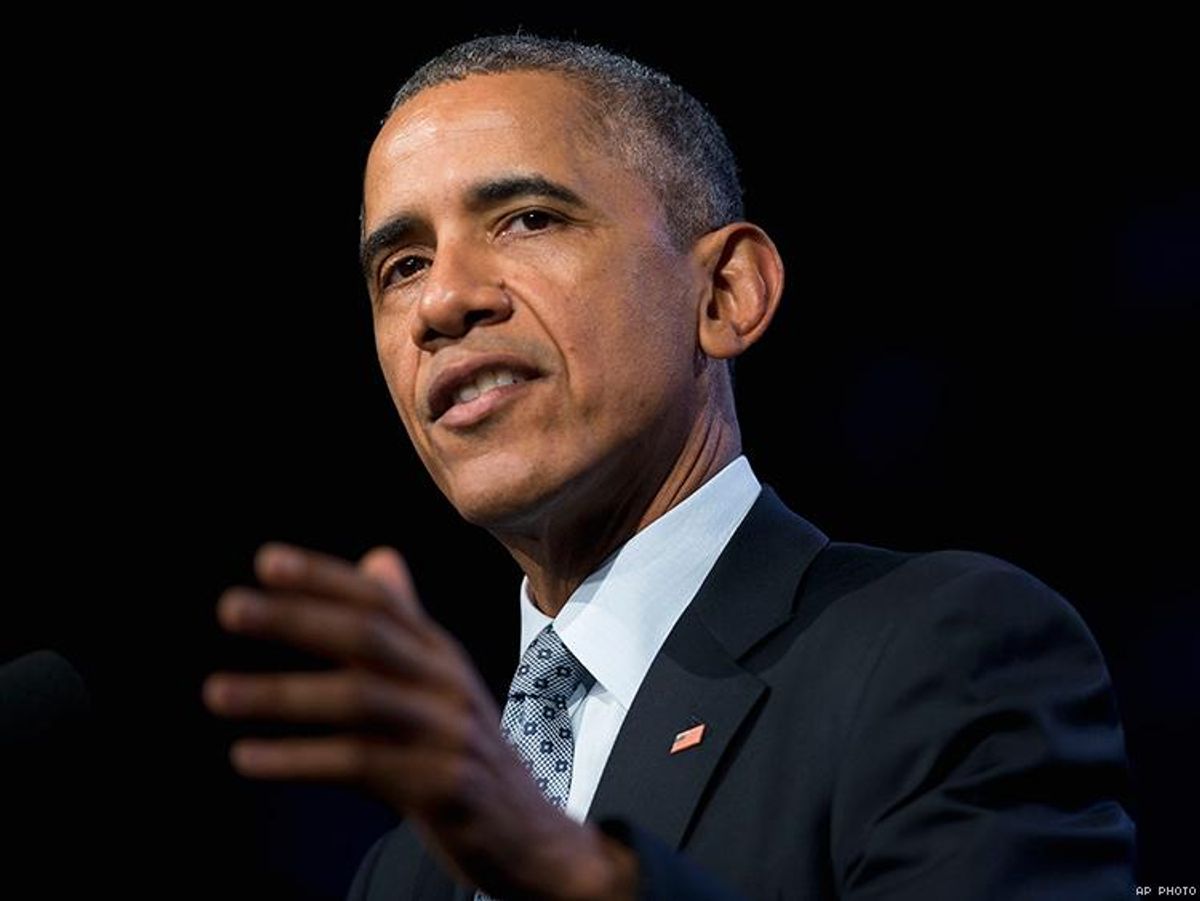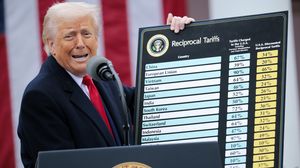President Obama has issued an executive order designed to ease the transition of former inmates back into society, reports The Atlantic. The order includes a commitment to "ban the box," essentially stopping federal agencies from asking job applicants about their criminal history with a box that flags them as ex-cons. But advocates say Obama's order falls short of eliminating the discriminatory practice altogether.
The statistics detailing America's prison problem are staggering:
One in three adults in the U.S. have been arrested by the time they reach 23.
There are more than 1.5 million Americans incarcerated in state and federal prisons.
LGBT inmates are four times more likely to be sexually assaulted in prison and more likely to spend time in solitary than non-LGBT inmates.
Each year, more than 600,000 individuals are released from state and federal prisons.Close to 90 percent of all employers in the country conduct background checks.
Within a year of their release, as many as 60 percent of ex-convicts cannot secure jobs.
Those who do make 40 percent less money than their colleagues.
Today's announcement at Rutgers University School of Criminal Justice in Newark, N.J., comes after mounting pressure from civil rights groups and prisoners themselves, who sat down with Obama in September during the first visit by a sitting president to a federal penitentiary.
The executive order requires the federal government's Office of Personnel Management to take steps to "delay inquiries into criminal history until later in the hiring process." But it does not ban the criminal background question altogether.
The order comes several months after the president called on employers to eliminate the criminal history question from job applications, and after a protest by "ban the box" advocates in front of the White House.
Washington, D.C., and 19 states -- California, Colorado, Connecticut, Delaware, Georgia, Hawaii, Illinois, Maryland, Massachusetts, Minnesota, Nebraska, New Jersey, New Mexico, New York, Ohio, Oregon, Rhode Island, Vermont, and Virginia -- already have the so-called ban the box laws on the books regarding public employment. Seven states have gone even further: Hawaii, Illinois, Massachusetts, Minnesota, New Jersey, Oregon and Rhode Island have banned the conviction history question on job applications for private employers, which advocates hope is the next step for the nation as a whole.
All three of the leading Democratic candidates for president support the "ban the box" cause on the campaign trail, as has Sen. Rand Paul, the Republican candidate for president who has introduced legislation with Democratic Sen. Cory Booker of New Jersey to seal criminal records for nonviolent offenders. Booker joined the president at today's announcement.
The executive order includes other proposals to prevent discrimination based on criminal history, like helping former prisoners apply for public housing and better funding for legal aid programs.
The response from the American Civil Liberties Union was congratulatory but cautious. "This afternoon President Obama announced an important first step toward giving formerly incarcerated men and women who have served their time a fair shot at employment," said Jeffery Robinson, deputy legal director.
"We join him in his desire to make getting a job a real possibility for those with criminal records instead of the impossible dream it is today. The president is intervening in the cruel cycle of mass incarceration and poverty, and we hope that Congress will join the fight with ambitious action.
"While the president's pledge to postpone the criminal record check in hiring processes for federal agency jobs to later in the process is an important beginning, we urge him to follow with an Executive Order applying this decision to federal contractors. With that order, the president will delay any consideration of a criminal record until later in the hiring process, thereby giving the recently freed men and women hope to get the jobs they need to provide for their families."
Read more about the executive order and the measures announced by President Obama to help promote rehabilitation and reintegration here.


















































































